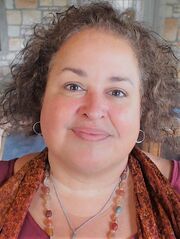Resources
From blogs, videos, podcasts, and interviews--find resources that answer your questions about being an end-of-life doula.
PODCAST EPISODES HERE
PODCAST EPISODES HERE
|
In response to "what is it that you do?", let me clarify with some scenarios. I work with people and families at two different times usually: 1) at some crisis point where we develop a plan that will get them through the time period, or 2) I am with a family as the person they love is dying, providing emotional, spiritual, and practical support. There are times when a situation may be overwhelming, confusing, have conflicting information, or an objective eye on the situation is needed. The person doesn't have to be dying for me to help. I help people all along the continuum from diagnosis through death. I spend as much time as is needed to help them come up with a plan.
There are other situations whereby someone may be going through surgery or needing hospitalization and they don't have family to make sure everything is going well or maintain what is going on. Sometimes a family wants an advocate to be with them throughout this hospitalization period or just the first few days. And then, there are times when the person who is ill is not on hospice, but is uncomfortable/miserable/there is family indecision/confusion or the person is in town but the rest of the family is out of town and they want someone who is aware of palliative care keeping an eye on their loved one and the situation to make sure they are not falling through the cracks during this time period of uncertainty. Whew, that was a long sentence. My love in service is being there for people and their families as someone is dying. I'm your advocate and guide, helping you throughout the whole process. I work closely with your hospice team, family, and physician. I have done all kinds of things that may not be on your list of things that are "normally" requested, i.e.: I have gone to the crematory to ensure the correct person was being cremated; been asked to assist with a last wish travel request to another country; helped with organizing insurance and medical bills; come at the time of death to be with the family until the funeral home arrives; preparing and blessing the body with or without the family. My hope this helps with understanding some of the ways I happen to support people as an end-of-life doula. It is not a medical role, but since I am a trained and licensed RN, I am able to advocate and assist in ways that others cannot. We are a new field and learning so much as we gain experience and momentum about how to speak about how we can support others as we each do it a little differently. We each have our way of blending our talents as we serve the dying, but the actual end-of-life doula role is specific to end-of-life support, no matter what else the person who is assisting you may be doing. |
Are you interested in serving at the end of life in your own unique way?

"It's 100% possible!"
Categories
All
|